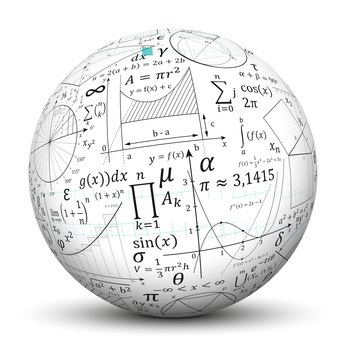Economics — confusing mathematical masturbation with intercourse between research and reality There’s no question that mainstream academic macroeconomics failed pretty spectacularly in 2008 … Many among the heterodox would have us believe that their paradigm worked perfectly well in 2008 and after … This is dramatically overselling the product. First, heterodox models didn’t “predict” the crisis in the sense of an actual quantitative forecast. This is because much of heterodox theory is non-quantitative. Basically, people write down English words explaining their conceptual ideas about how the economy works. This describes the ideas of mid-20th-century economist Hyman Minsky, who wrote books and essays about the instability of the financial system. Minsky, though trained in math, chose not to use equations to model the economy — instead, he sketched broad ideas in plain English … At the end of the day, policymakers and investors need to make quantitative decisions — how much to raise or lower interest rates, how big of a deficit to run, or how much wealth to allocate to Treasury bonds.
Topics:
Lars Pålsson Syll considers the following as important: Economics
This could be interesting, too:
Lars Pålsson Syll writes Schuldenbremse bye bye
Lars Pålsson Syll writes What’s wrong with economics — a primer
Lars Pålsson Syll writes Krigskeynesianismens återkomst
Lars Pålsson Syll writes Finding Eigenvalues and Eigenvectors (student stuff)
Economics — confusing mathematical masturbation with intercourse between research and reality
There’s no question that mainstream academic macroeconomics failed pretty spectacularly in 2008 …
Many among the heterodox would have us believe that their paradigm worked perfectly well in 2008 and after … This is dramatically overselling the product. First, heterodox models didn’t “predict” the crisis in the sense of an actual quantitative forecast.
This is because much of heterodox theory is non-quantitative. Basically, people write down English words explaining their conceptual ideas about how the economy works. This describes the ideas of mid-20th-century economist Hyman Minsky, who wrote books and essays about the instability of the financial system. Minsky, though trained in math, chose not to use equations to model the economy — instead, he sketched broad ideas in plain English …
At the end of the day, policymakers and investors need to make quantitative decisions — how much to raise or lower interest rates, how big of a deficit to run, or how much wealth to allocate to Treasury bonds.
Noah Smith — like so many other mainstream economists — obviously has the unfounded and ridiculous idea that because heterodox people like yours truly often criticize the application of mathematics in mainstream economics, we are critical of math per se.
I don’t know how many times I’ve been asked to answer this straw-man objection to heterodox economics — but here we go again:
No, there is nothing wrong with mathematics per se.
No, there is nothing wrong with applying mathematics to economics.
 Mathematics is one valuable tool among other valuable tools for understanding and explaining things in economics.
Mathematics is one valuable tool among other valuable tools for understanding and explaining things in economics.
What is, however, totally wrong, are the utterly simplistic beliefs that
• “math is the only valid tool”
• “math is always and everywhere self-evidently applicable”
• “math is all that really counts”
• “if it’s not in math, it’s not really economics”
• “almost everything can be adequately understood and analyzed with math”
As social scientists we should never equate science with mathematics and statistical calculation. All science entail human judgement, and using mathematical and statistical models don’t relieve us of that necessity. They are no substitutes for doing real science. Or as a great German philosopher once famously wrote:
There is no royal road to science, and only those who do not dread the fatiguing climb of its steep paths have a chance of gaining its luminous summits.
Looking at what famous mathematical mainstream economists — like e.g. Paul Samuelson and Gerard Debreu — have come up with, there is no indication at all they produce rigorous and successful explanations or predictions of real-world phenomena. In physics it’s all different. There one has often been able to, by the use of mathematics, to produce both rigorous and successful explanations and predictions. But then, of course, the material world is something quite different from the social world …
Neoclassical economic theory today is in the story-telling business whereby economic theorists create mathematical make-believe analogue models of the target system – usually conceived as the real economic system. This mathematical modeling activity is considered useful and essential. Since fully-fledged experiments on a societal scale as a rule are prohibitively expensive, ethically indefensible or unmanageable, economic theorists have to substitute experimenting with something else. To understand and explain relations between different entities in the real economy the predominant strategy is to build mathematical models and make things happen in these “analogue-economy models” rather than engineering things happening in real economies.
Formalistic mathematical-deductive “Glasperlenspiel” can be very impressive and seductive. But in the realm of science it ought to be considered of little or no value to simply make claims about the model and lose sight of reality.
With his profound knowledge of mathematics, Keynes realized the limits of its applicability to the real world — and that it was certainly not enough for a relevant social science to prove things about thought up worlds:
But I am unfamiliar with the methods involved and it may be that my impression that nothing emerges at the end which has not been introduced expressly or tacitly at the beginning is quite wrong … It seems to me essential in an article of this sort to put in the fullest and most explicit manner at the beginning the assumptions which are made and the methods by which the price indexes are derived; and then to state at the end what substantially novel conclusions has been arrived at … I cannot persuade myself that this sort of treatment of economic theory has anything significant to contribute. I suspect it of being nothing better than a contraption proceeding from premises which are not stated with precision to conclusions which have no clear application … [This creates] a mass of symbolism which covers up all kinds of unstated special assumptions.
Keynes to Frisch 28 November 1935
So — please — let’s have no more of this feeble-minded pseudo debate where heterodox economics is described as simply anti-math!
Mainstream economists love to depict heterodox economists’ views on the use of mathematics as coming from sadly misinformed and misguided people who dislike and do not understand much of it. This is really a gross misapprehension. We do not misunderstand the crucial issues at stake — and many of us have spent decades on using mathematics and statistics in our research and teaching. To be careful and cautious is not the same as to dislike. Quite the contrary. We know the crucial issues all too well — and are not satisfied with the validity and philosophical underpinning of the assumptions made for applying mathematical methods in economics.
Without strong evidence all kinds of absurd claims and nonsense may pretend to be science. So let us not forget what Paul Romer — someone I guess not even the most outré mainstreamer would call ‘anti-math’ — said in his masterful attack on ‘post-real’ economics last year:
Math cannot establish the truth value of a fact. Never has. Never will.
We have to demand more of a justification than rather watered-down versions of “anything goes” when it comes to the main postulates on which mainstream economics is founded. If one proposes ‘efficient markets’ or ‘rational expectations’ one also has to support their underlying assumptions. As a rule none is given, which makes it rather puzzling how things like ‘efficient markets’ and ‘rational expectations’ have become the standard modeling assumption made in much of modern macroeconomics. The reason for this sad state of ‘modern’ economics is that economists often mistake mathematical beauty for truth.
No real problem worth solving can be solved without some basic research. Therefore the engagement of faculty and students on real problems yields basic research problems whose solutions are of practical significance. Furthermore, the validity of these solutions can be tested in the most effective way known: in application. This avoids one’s confusing mathematical masturbation with intercourse between research and reality.

